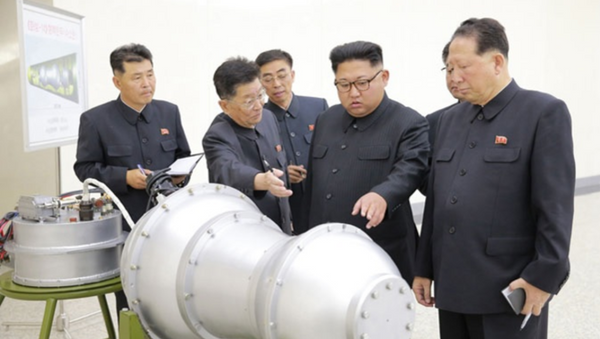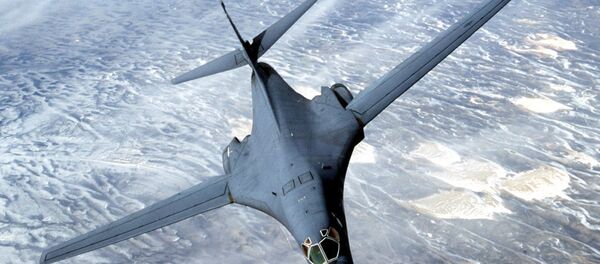International pressure against North Korea in the form of sanctions and blockades, plus frequent reminders of the threat of force in the form of US, South Korean and Japanese military exercises will not deter North Korea from fully developing a weapons arsenal including ballistic missiles and nukes, vowed a Thursday editorial published in Rodong Sinmun, a North Korean newspaper.
The editorial bashed Tuesday's show of force, when a pair of US Air Force B-1B Lancer bombers flanked by two South Korean F-15Ks fired air-to-ground missiles to simulate an attack on ground targets on the Korean Peninsula.
"Through practice at this time, South Korean and US air forces showed off their allies' resolve for strong retaliation against North Korea's nuclear and missile threats," the South Korean Joint Chiefs of Staff said following the drill.
North Korea sees the drills as a dress rehearsal for taking their country over. While North Korean press reports often include a generous helping of rhetorical flourish, the concern that enemy jets are preparing for an invasion is warranted: while searching for terror suspects in Afghanistan and Pakistan following the September 11, 2001 terror attacks, the US invaded Iraq on the basis of phony worries about weapons of mass destruction. Whether the US would have invaded had it believed Baghdad to have usable nuclear weapons must remain a pertinent question in Pyongyang.
Pyongyang is holding firm to its long-held promise that it will never denuclearize. The nation's leadership views its nuclear stockpile as a "sword of justice," North Korean Foreign Minister Ri Yong-ho told Russian media Wednesday. Stanford's Siegfried Hecker estimates that North Korea maintains approximately 25 nukes while having the capacity to produce six or seven more every year. The country is actively working to be able to mount these weapons on an intercontinental ballistic missile, one that would bring US territories within reach. How close they are to this goal is yet a matter of debate.
Kim views nuclear weapons as "safeguarding peace" on the Korean Peninsula, a point he recently reiterated at an October 7 speech before the Central Committee of the Workers Party of Korea. The North Korean government's position on those nuclear weapons is "not use nuclear weapons first unless aggressive hostile forces use nuclear weapons to invade on our sovereignty," Kim was quoted as saying by the UK Independent in May 2016.




